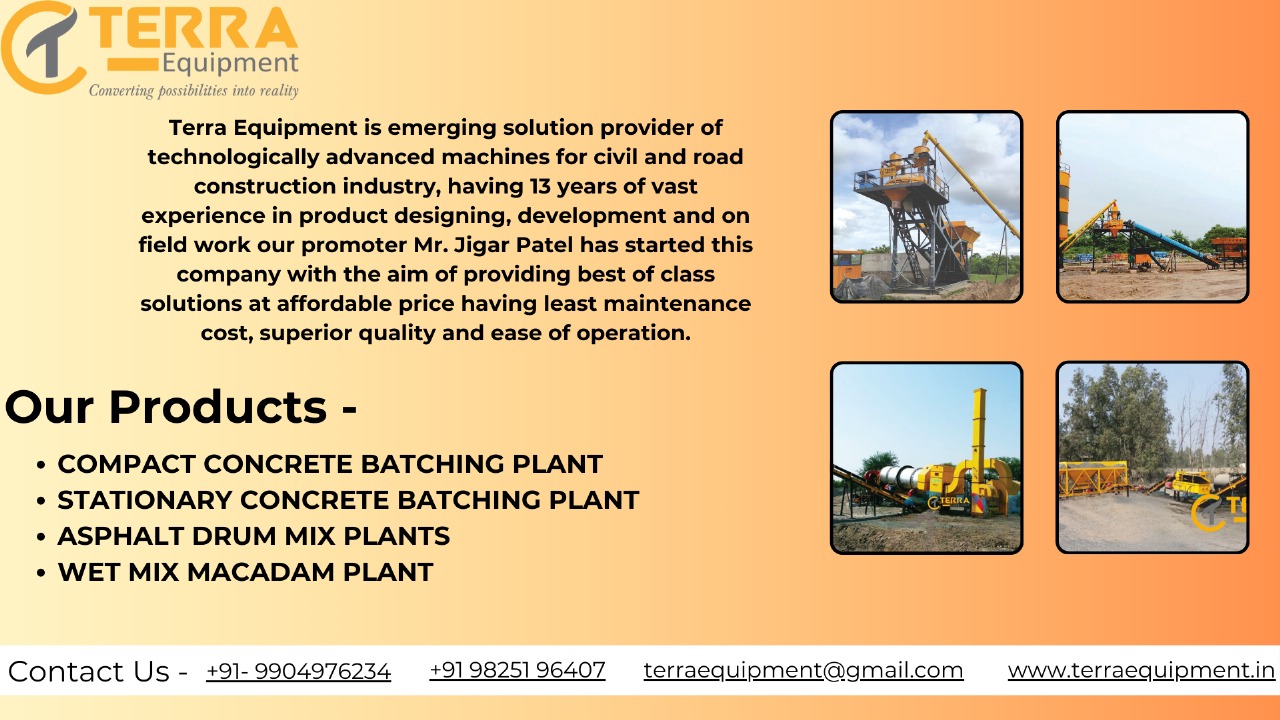Compact Stationary Concrete Batching Plant Price
The Priceof a compact stationary concrete batching plant reflects its configuration,
capacity, level of automation, quality of components, and optional features
like moisture sensors or additive systems. While more affordable than
large-scale plants, compact stationary batching plants still offer high-quality
output with a smaller footprint. The price usually includes the core plant
system (mixer, batching unit, control panel), while silos, conveyors, and
additional accessories can be modular add-ons. It represents a cost-effective
solution for medium- to large-scale projects or commercial RMC suppliers that
need stationary, efficient concrete production with limited space.
Top 10 FAQs of Compact Stationary Concrete Batching
Plant Price
- What affects the price of a
compact stationary batching plant?
Capacity, brand, mixer type (twin shaft/planetary), automation level, material quality, and optional equipment. - Are there hidden costs
besides the base price?
Yes — installation, civil works, freight, commissioning, silos, generators, and operator training can add to the cost. - Is buying a compact plant
more economical than renting one?
For long-term or multiple projects, buying is usually more cost-effective than renting. - Can I get a plant customized
within a limited budget?
Yes, many manufacturers offer modular options and customization to fit different budgets. - Is there a significant price
difference between automatic and semi-automatic plants?
Fully automatic systems cost more upfront but offer better productivity and labor savings over time. - Do reputed brands cost more?
Yes, but they often offer longer durability, better service, and lower maintenance, making them cost-effective in the long run. - What is the ROI period for
such plants?
Typically 6 months to 2 years, depending on usage and production volume. - Can I reduce costs by buying
a second-hand plant?
Yes, but it comes with risks related to wear, lack of warranty, and outdated technology. - Does government financing or
subsidy apply to these machines?
In some countries, there may be subsidies or financing options under construction or MSME schemes. - How can I ensure the best
value for my investment?
Compare multiple suppliers, verify technical specifications, consider after-sales service, and prioritize build quality.
Applications of Compact Stationary Concrete
Batching Plant Price
- Small to Medium Real Estate
Developers Seeking Cost-Effective Production
- Infrastructure Projects with
Space Constraints but Long Durations
- Municipal Corporations for
Urban Concrete Needs
- Private Road Construction
Companies
- Concrete Product
Manufacturers (Blocks, Pavers, etc.)
- Contractors with Multiple
Simultaneous Construction Sites
- Ready Mix Concrete (RMC)
Entrepreneurs Looking for Entry-Level Investment
- Industrial Complex Construction
- Affordable Housing Projects
(Low-Margin, High-Volume)
- Export Projects in
Developing Nations
Benefits of Compact Stationary Concrete Batching
Plant Price
- Smaller Civil Work and
Foundation Costs
- Reduced Transportation Costs
Due to Compact Design
- Fewer Operators Needed =
Lower Labor Costs
- High Mix Quality = Reduced
Material Wastage
- Faster ROI Due to Efficient
Output
- Customizable Configurations for Budget Control
- Energy Efficient Systems
Reduce Operational Expenses
- Minimal Maintenance Downtime
Saves Repair Costs
- Ideal for RMC Startups to
Scale with Growth
Contact us more details:
Call: +91 98251 96407 +91- 9904976234
Email:
terraequipment@gmail.com
Address: Survey No- 231, Dediyasan
Village, Opp Lilaba Weigh Bridge , Mehsana -384002 Gujarat.

